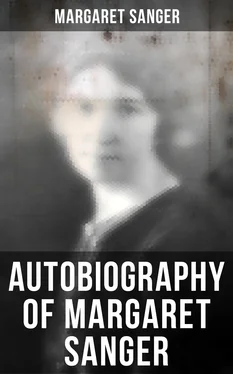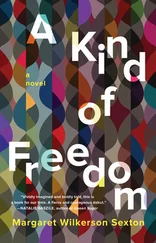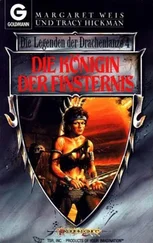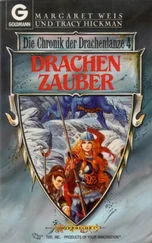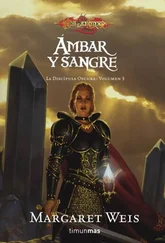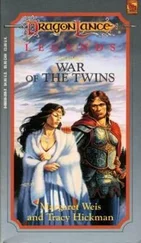Who cared for the dreary, dark, little hall! In the woodland was room for all. Those who had come for discussion sat spellbound on the ground in a ring around the standing orator. For them the booing had been incidental and was ignored. I cannot remember a word of what Colonel Ingersoll said, but the scene remains. It was late in the afternoon, and the tall pines shot up against the fiery radiance of the setting sun, which lit the sky with the brilliance peculiar to the afterglows of the Chemung Valley.
Florid, gray-haired Father Coghlan, probably tall in his prime, came to call on mother. He was a kindly old gentleman, not really intolerant. Shutting the hall had been a matter of principle; he could not have an atheist within those sacred walls. But he was willing to talk about it afterwards. In fact, he rather enjoyed arguing with rebels. He was full of persuasion which he used on mother, begging her to exercise her influence with father to make him refrain from his evil ways. She had been reared in the faith, although since her marriage to a freethinker which had so distressed her parents, she had never attended church to my knowledge. The priest was troubled to see her soul damned when she might have been a good Catholic, and implored her to send her children to church and to the parochial school, to stand firm against the intrusion of godlessness. Mother must have suffered from the conflict.
None of us realized how the Ingersoll episode was to affect our well-being. Thereafter we were known as children of the devil. On our way to school names were shouted, tongues stuck out, grimaces made; the juvenile stamp of disapproval had been set upon us. But we had been so steeped in “heretic” notions that we were not particularly bothered by this and could not see ahead into the dark future when a hard childhood was to be made harder. No more marble angels were to be carved for local Catholic cemeteries, and, while father’s income was diminishing, the family was increasing.
Occasionally big commissions were offered him in adjacent towns where his reputation was still high, and he was then away for days at a time, coming back with a thousand or fifteen hundred dollars in his pocket; we all had new clothes, and the house was full of plenty. Food was bought for the winter—turnips, apples, flour, potatoes. But then again a year might pass before he had another one, and meanwhile we had sunk deeply into debt.
Towards orthodox religion father’s own attitude remained one of tolerance. He looked upon the New Testament as the noble story of a human being which, because of ignorance and the lack of printing presses, had become exaggerated. He maintained that religions served their purpose; some people depended on them all their lives for discipline—to keep them straight, to make them honest. Others did not need to be so held in line. But subjection to any church was a reflection on strength and character. You should be able to get from yourself what you had to go to church for.
When we asked which Sunday School we should attend, he suggested, “Try them all, but be chained to none.” For a year or two I made the rounds, especially at Christmas and Easter, when you received oranges and little bags of candy. It was always cold at the Catholic church and the wooden benches were very bare and hard; some seats were upholstered in soft, red cloth but these were for the rich, who rented the pews and put dollars into the plate at collection. I never liked to see the figure of Jesus on the cross; we could not help Him because He had been crucified long ago. I much preferred the Virgin Mary; she was beautiful, smiling—the way I should like to look when I had a baby.
Saying my prayers for mother’s benefit was spasmodic. Ethel, the sister nearest my own age, was more given than I to religious phases and I could get her in bed faster if I said them with her. One evening when we had finished this dutiful ritual I climbed on father’s chair to kiss him good night. He asked quizzically, “What was that you were saying about bread?”
“Why, that was in the Lord’s Prayer, ‘Give us this day our daily bread.’ ”
“Who were you talking to?”
“To God.”
“Is God a baker?”
I was shocked. Nevertheless, I rallied to the attack and replied as best I could, doubtless influenced by conversations I had heard. “No, of course not. It means the rain, the sunshine, and all the things to make the wheat, which makes the bread.”
“Well, well,” he replied, “so that’s the idea. Then why don’t you say so? Always say what you mean, my daughter; it is much better.”
Thereafter I began to question what I had previously taken for granted and to reason for myself. It was not pleasant, but father had taught me to think. He gave none of us much peace. When we put on stout shoes he said, “Very nice. Very comfortable. Do you know who made them?”
“Why, yes, the shoemaker.”
We then had to listen to graphic descriptions of factory conditions in the shoe industry, so that we might learn something of the misery and poverty the workers suffered in order to keep our feet warm and dry.
Father never talked about religion without bringing in the ballot box. In fact, he took up Socialism because he believed it Christian philosophy put into practice, and to me its ideals still come nearest to carrying out what Christianity was supposed to do. Unceasingly he tried to inculcate in us the idea that our duty lay not in considering what might happen to us after death, but in doing something here and now to make the lives of other human beings more decent. “You have no right to material comforts without giving back to society the benefit of your honest experience,” was one of his maxims, and his parting words to each of his sons and daughters who had grown old enough to fend for themselves were, “Leave the world better because you, my child, have dwelt in it.”
This was something to live up to.
Chapter Two BLIND GERM OF DAYS TO BE
Table of Contents
“ I think, dearest Uncle, that you cannot really wish me to be the ‘mamma d’une nombreuse famille,’ for I think you will see the great inconvenience a large family would be to us all, and particularly to the country, independent of the hardship and inconvenience to myself; men never think, at least seldom think, what a hard task it is for us women to go through this very often. ”
QUEEN VICTORIA to KING LEOPOLD
Often when my brothers and sisters and I meet we remind each other of funny or exciting adventures we used to have, but I never desire to live that early part of my life again. Childhood is supposed to be a happy time. Mine was difficult, though I did not then think of it as a disadvantage nor do I now.
It never occurred to me to ask my parents for pocket money, but the day came during my eighth year when I was desperately in want of ten cents. Uncle Tom’s Cabin was coming to town. On Saturday afternoon I started out with one of my playmates, she with her dime, I with nothing but faith. We reached the Corning Opera House half an hour early. The throng at the entrance grew thicker and thicker. Curtain time had almost come, and still no miracle. Nevertheless, I simply had to get into that theater. All about me had tickets or money or both. Suddenly I felt something touch my arm—the purse of a woman who was pressed close beside me. It was open, and I could see the coveted coins within. One quick move and I could have my heart’s desire. The longing was so deep and hard that it blotted out everything except my imperative need. I had to get into that theater.
I was about to put out my hand towards the bag when the doors were thrown wide and the crowd precipitately surged forward. Being small, I was shoved headlong under the ropes and into the safety of the nearest seat. But I could take no joy in the play.
Читать дальше
